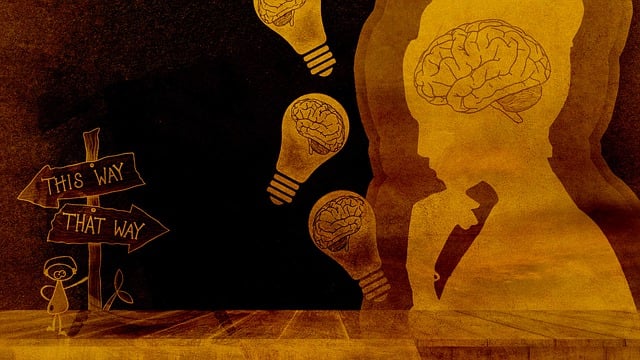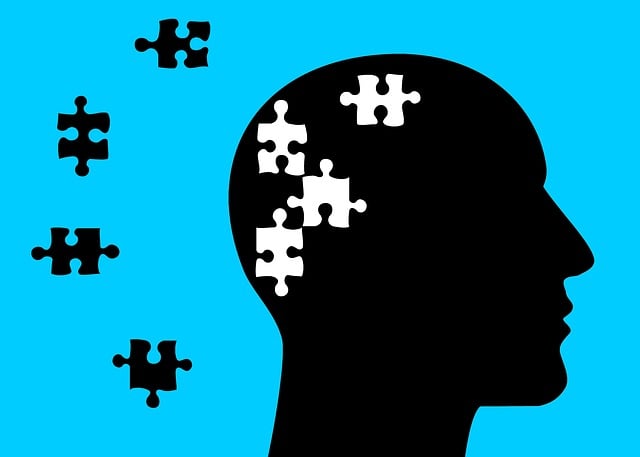Mental health professionals leverage risk assessment as a powerful tool for proactive hazard mitigation, integrating diverse fields like Englewood Anger Management Therapy to tailor coping skill development strategies. This involves considering patient history, current circumstances, and potential triggers for both immediate crises and long-term risks. The goal is to foster resilience, improve emotional management, and promote healthier coping mechanisms through interventions designed with cultural sensitivity, guided by ethical standards, and enhanced by continuous evaluation of best practices from programs like Englewood Anger Management Therapy.
In the realm of mental health practice, risk assessment is a crucible that shapes patient care. For professionals working in Englewood Anger Management Therapy settings, understanding and managing risks are paramount to ensure client safety. This article navigates through essential aspects of risk assessment, exploring potential hazards unique to such environments. We delve into ethical considerations, safety protocols, crisis intervention strategies, and the ongoing need for evaluation and improvement, providing a comprehensive guide for mental health professionals.
- Understanding Risk Assessment in Mental Health Practice
- Identifying Potential Risks in Englewood Anger Management Therapy Settings
- Ethical Considerations for Mental Health Professionals
- Implementing Effective Safety Protocols and Crisis Intervention Strategies
- Continuous Evaluation and Improvement in Risk Management
Understanding Risk Assessment in Mental Health Practice

In the realm of mental health practice, risk assessment is a vital tool that helps professionals identify and mitigate potential hazards within their work. It involves a comprehensive evaluation of various factors that may impact patient well-being and the safety of both clients and therapists. By integrating knowledge from disciplines like Englewood Anger Management Therapy, emotional regulation, and burnout prevention, mental health practitioners can create tailored strategies to enhance coping skills development.
This process requires professionals to consider not only immediate crises but also long-term risks. It involves assessing patient history, current circumstances, and potential triggers that could escalate into harmful behaviors or emotions. Through this careful evaluation, therapists can design interventions aimed at fostering resilience, improving emotional management, and promoting healthier coping mechanisms in their clients.
Identifying Potential Risks in Englewood Anger Management Therapy Settings

In Englewood Anger Management Therapy settings, identifying potential risks is paramount to ensuring a safe and effective therapeutic environment. Mental health professionals must be vigilant in assessing the unique challenges inherent in working with individuals struggling with anger management issues. These risks can stem from various sources, including intense emotions, past traumatic experiences, and social isolation, which may manifest as both individual and collective dynamics within the therapy group.
Effective risk assessment for Englewood Anger Management Therapy involves not only recognizing signs of potential crises but also understanding how conflict resolution techniques and stress management strategies can mitigate these risks. By incorporating mental illness stigma reduction efforts, therapists create a supportive atmosphere that encourages open communication and fosters positive outcomes. This holistic approach not only addresses the immediate concerns but also promotes long-term resilience among clients.
Ethical Considerations for Mental Health Professionals

Mental health professionals are held to high ethical standards, especially when dealing with vulnerable populations. One key consideration is ensuring patient safety while maintaining confidentiality. In the case of anger management therapy, for instance, at Englewood Anger Management Therapy, therapists must be vigilant about recognizing and managing their own emotions to prevent potential harm to clients. This includes understanding personal biases and triggers, as well as being mindful of cultural competency, especially when working with diverse client backgrounds.
Additionally, healthcare provider cultural competency training plays a significant role in ethical practice. Mental health professionals should be equipped to navigate the complex web of cultural differences, values, and beliefs that can influence an individual’s experience of mental health issues. Effective risk assessment for mental health professionals must incorporate these dimensions to deliver culturally sensitive care. By integrating stress management techniques into their practices, therapists can create a safe and supportive environment, fostering open communication and enhancing therapeutic outcomes.
Implementing Effective Safety Protocols and Crisis Intervention Strategies

Mental health professionals must prioritise safety protocols to mitigate risks effectively. This includes comprehensive risk assessment training to identify potential hazards and implement proactive measures. By integrating conflict resolution techniques, such as those offered by Englewood Anger Management Therapy, practitioners can handle high-stress situations with composure, de-escalating conflicts before they escalate into crises.
A robust crisis intervention strategy is paramount. This involves equipping professionals with tools to recognise early warning signs of patient distress, ensuring prompt and effective interventions. Fostering a culture of open communication and positive thinking empowers professionals to create safe, supportive environments that promote healing rather than trigger additional trauma.
Continuous Evaluation and Improvement in Risk Management

Mental health professionals must embrace a culture of continuous evaluation and improvement to enhance their risk management strategies. Regularly reviewing and updating practices allows them to stay abreast of emerging research, best practices, and new guidelines in the field. This ongoing process involves critically assessing existing protocols, identifying gaps or weaknesses, and implementing evidence-based solutions. For instance, professionals can adapt effective techniques from renowned programs like Englewood Anger Management Therapy to foster self-esteem improvement and enhance communication strategies.
Additionally, continuous evaluation prompts practitioners to seek crisis intervention guidance from peers or specialized training institutions. By staying agile and adaptable, mental health professionals better equip themselves to navigate complex situations, reduce risks, and ultimately provide more effective care to their clients.
Mental health professionals play a pivotal role in helping individuals manage anger, especially in settings like Englewood Anger Management Therapy. To ensure effective and safe practices, understanding risk assessment is paramount. By identifying potential risks, adhering to ethical guidelines, implementing robust safety protocols, and fostering continuous evaluation, mental health practitioners can create secure environments that foster healing and growth. This comprehensive approach to risk management not only protects clients but also enhances the overall quality of care provided in Englewood Anger Management Therapy settings.














